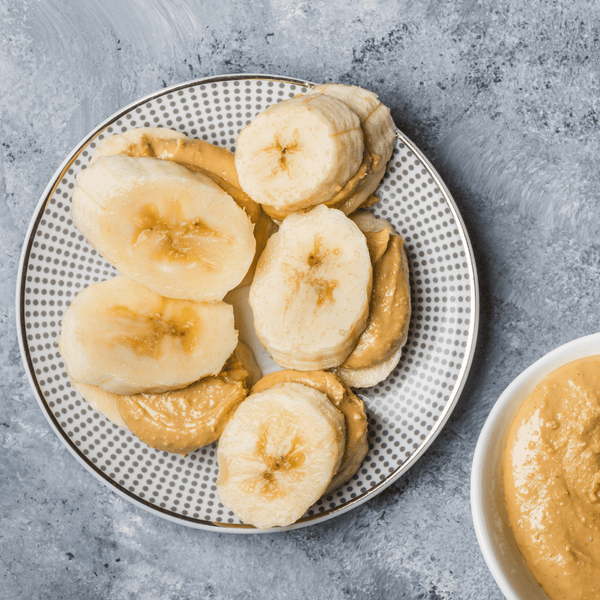Snacking is more popular than ever. According to the 2024 IFIC Food & Health Survey, 74% of Americans snack at least once a day, with 56% even replacing meals with snacks.
However, while the U.S. is known for its bold flavors, food safety remains a top priority. Strict food regulations ensure that only safe, approved products make it to store shelves.
Because of these regulations, over the years, several snacks have been banned or never approved due to health risks, safety concerns, or regulatory issues.
In this article, we’ll explore the snacks that didn’t make the cut, the reasons behind their bans, and what this means for both consumers and manufacturers. For parents looking for safe snacking options, check out our guide on healthy snacks for kids that meet all safety standards.
Why Are Snacks Banned?
Before getting into the list of banned snacks in America here are the various reasons a snack might not enter the U.S. market or might be taken off shelves:
- Choking Hazards: Snacks that contain components or small parts can pose risks, particularly for young children.
- Unsafe Ingredients: Certain substances that have harmful ingredients that are not approved in the U.S. can result in a product being prohibited.
- Labeling and Misrepresentation: Incorrect food labeling regarding nutritional values or allergen information can lead to a recall or ban.
Controversial Cases and Interesting Facts that Have Led Food Snacks Banned in America
1. Kinder Surprise Eggs: A Global Favorite, A U.S. Ban
Kinder Surprise Eggs represent one of the most notable examples of banned snacks in America. While millions worldwide savor the combination of chocolate and a toy, American authorities have consistently argued that incorporating non-food items into candy presents unacceptable dangers for children.
Even with countless petitions and demands for a policy change, the prohibition remains the same. Looking for safe chocolate treats for kids? Our chocolate protein bars offer delicious flavor without any hidden hazards.
2. Haggis: Cultural Heritage vs. Regulation
Haggis serves as another intriguing example. This beloved Scottish dish holds great cultural importance and is appreciated for its peculiar taste.
However, the inclusion of sheep lung—a substance not permitted by U.S. food regulations—results in a ban on authentic haggis. As a response, some producers have developed modified versions that adhere to U.S. laws, though traditionalists often lament these modifications.
3. Casu Marzu: The Cheese That Sparks Debate
Casu Marzu, commonly known as “maggot cheese,” elevates the idea of banned snacks in America to an entirely different level. This Sardinian delicacy, recognized for its intentional infestation with live insect larvae, is praised in certain culinary circles for its intense flavor.
However, the health hazards linked to eating live larvae have led to its prohibition in multiple countries, including the United States. While it may not be a common snack, its reputation ignites discussions about food culture and safety.
Top 12 Food Snacks Banned in America Even in 2025
1. Kinder Surprise Eggs
- Reason for Ban: The risk of choking is due to the small toy hidden within the chocolate egg.
- Regulating Body: FDA.
- Year of Ban: 1938 (under the Food, Drug, and Cosmetic Act).
Why?
Kinder Surprise Eggs are a popular treat across the globe, but the toy inside presents a serious choking problem for young children. The FDA implements stringent regulations to safeguard consumers, especially minors, from these dangers.
2. Four Loko (Original Formula)
- Reason for Ban: Health hazards stemming from the combination of alcohol and caffeine.
- Regulating Body: FDA.
- Year of Ban: 2010.
Why?
The initial formula of Four Loko became infamous for its dangerous mix of alcohol and caffeine, resulting in serious health threats. The FDA intervened to mitigate risky behaviors tied to its use.
3. Jelly Fruits
- Reason for Ban: Choking hazard.
- Regulating Body: FDA.
- Year of Ban: 2001.
Why?
These small, squeezable jelly candies have a considerable choking risk, particularly for young children. The FDA banned them to prevent potential harm to kids.
4. Warheads Sour Bubble Gum
- Reason for Ban: Extreme acidity leads to oral irritation.
- Regulating Body: FDA.
- Year of Ban: 2007.
Why?
The extremely sour coating of Warheads Sour Bubble Gum resulted in complaints related to mouth irritation and discomfort. The FDA acted to guarantee that products aimed at children do not cause physical injury.
5. Roadkill Gummy Candy
- Reason for Ban: Distasteful imagery.
- Regulating Body: Various state governments.
- Year of Ban: 2004.
Why?
Roadkill gummy candy provoked backlash due to its portrayal of crushed animals, prompting a voluntary market withdrawal. The ban emphasized concerns about the messages products convey to children.
6. Pocky Men’s Bitter Chocolate
- Reason for Ban: Incorrect ingredient labeling.
- Regulating Body: FDA.
- Year of Ban: 2008.
Why?
Precise labeling is critical for consumer safety, particularly for individuals with allergies or dietary restrictions. Pocky Men’s Bitter Chocolate was prohibited due to inconsistencies in its ingredient information.
7. Cadbury Chocolate
- Reason for Ban: Trademark conflict.
- Regulating Body: Hershey’s trademark enforcement.
- Year of Ban: 2015.
Why?
Certain Cadbury products faced restrictions in the U.S. because of a trademark issue with Hershey’s. This is due to the complexities of international trade and branding matters.
8. Nestlé Magic Balls
- Reason for Ban: Choking hazard.
- Regulating Body: FDA.
- Year of Ban: 1997.
Why?
Like Kinder Surprise Eggs, Nestlé Magic Balls were also prohibited due to the small toy inside, which presents a choking risk for young children.
9. Ritz Bits Sandwiches with Cheese (Recall)
- Reason for Ban: Recall due to possible salmonella contamination.
- Regulating Body: FDA.
- Year of Ban: 2018.
Why?
While not permanently banned, Ritz Bits Sandwiches with Cheese underwent a recall because of potential salmonella contamination. This highlights the significance of food safety monitoring.
10. Oreo Fudge Cremes (Recall)
- Reason for Ban: Recall due to undeclared allergen (milk).
- Regulating Body: FDA.
- Year of Ban: 2012.
Why?
The recall of Oreo Fudge Cremes illustrates the necessity for accurate labeling to protect consumers with allergies.
11. Lazy Cakes
- Reason for Ban: Included melatonin, which is not sanctioned as a food additive.
- Regulating Body: FDA.
- Year of Ban: 2011.
Why?
Lazy Cakes were scrutinized for containing melatonin, which is not approved for inclusion in food products. This led to a rebranding and reformulation of the product.
With so many snacks facing bans or recalls, it's more important than ever to choose brands that prioritize safety and transparency. For families seeking worry-free options, explore our collections of healthy snacks and toddler snacks that meet the highest safety standards.
What Do 100 Cal Snacks Do Differently?
With so many snacks facing bans due to harmful ingredients, 100 Cal Snacks stands apart by doing things the right way: clean, transparent, and delicious.
- Made for Everyone, Including Kids – Our snacks are crafted from clean, high-quality ingredients with no artificial additives or preservatives, making them a safe and nutritious choice for all ages.
- No Added Sugars, Just Pure Goodness – Unlike many snacks loaded with hidden sugars, 100 Cal Snacks contains zero added sugars, ensuring a healthier treat without unnecessary spikes in blood sugar.
- Packed with Nutrients – Each snack delivers a powerhouse of fiber, protein, and essential vitamins, keeping you full, energized, and satisfied.
- Transparency You Can Trust – We believe in honest, clear labeling—no mystery ingredients, no misleading claims, just 100% real food. All our products are also gluten-free, vegan-friendly, and perfect for various dietary needs.
At 100 calories per serving, our snacks offer the perfect balance of taste, nutrition, and safety—something many banned snacks failed to do. Try out our chocolate protein bars, peanut butter protein bars, and BBQ Protein Puffs today and taste the difference yourself! Need more snacking inspiration? Browse our full collection of protein bars and protein puffs for convenient, safe options.
FAQs?
Are chocolate protein bars healthy for children?
Absolutely! The chocolate flavors from 100 Cal Snacks deliver the taste that many other snack brands struggle to achieve without using artificial ingredients. With no added sugars, gluten, or sugar alcohols, your kids can develop healthy and delicious snacking habits! Want more guilt-free sweet options? Check out our healthy sweet snacks collection designed for both kids and adults.
Are the components in the protein bars nutritious?
Yes. With ingredients like chicory root fiber, organic rosemary extract, organic amla fruit (Indian Gooseberry) powder, known for its high vitamin C content, and adaptogens like ashwagandha that provide calming and revitalizing benefits, 100 Cal Snacks consistently impress with their nutrient profile! Learn more about the benefits of our key ingredients: chicory root fiber for digestive health and ashwagandha benefits for stress management.
What are the best protein-filled snacks for kids to eat?
Snacks primarily serve as fillers between main meals. While protein-rich snacks can benefit growing children, options like Greek yogurt, hard-boiled eggs, hummus with veggie sticks or whole grain pita, and edamame can be both delightful and nutritious!
For busy parents, our high-protein snacks offer convenient nutrition without compromising on safety or taste. Also explore our guide on baby snacks for age-appropriate options.








